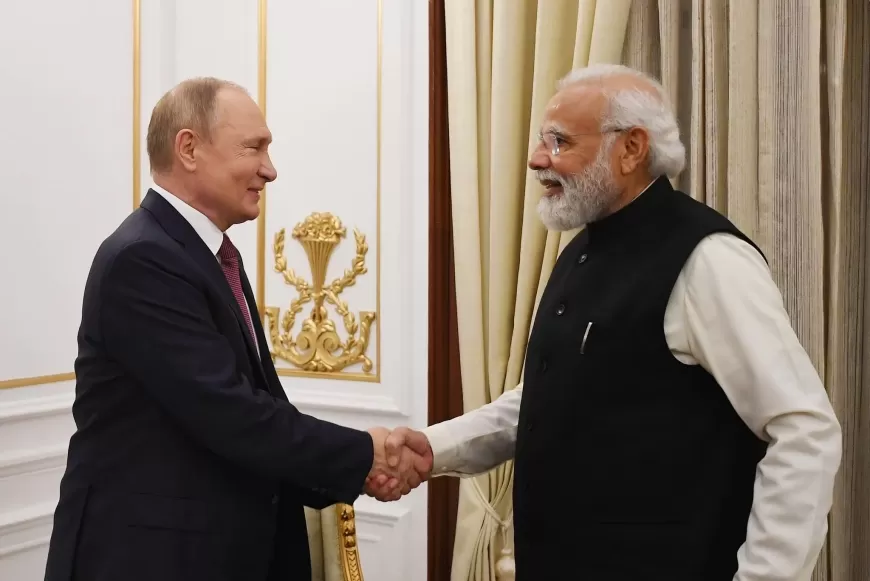India-Russia Nuclear Deal Secures Long-Term Uranium Supply
Learn about India's strategic move to secure long-term uranium supply from Russia, strengthening energy security and bilateral relations. Modi-Putin Meeting to Bolster Bilateral Ties and Strategic Agreements

India is nearing an agreement with Russia for a long-term supply of uranium to fuel a new nuclear power plant in Tamil Nadu. Sources familiar with the negotiations indicate that discussions are progressing as Indian Prime Minister Narendra Modi prepares for his first visit to Russia in five years.
Scheduled for Monday and Tuesday, Modi's visit aims to strengthen bilateral relations and is expected to yield significant agreements between the two nations. Among these is a potential agreement allowing mutual use of military facilities for training, port calls, and humanitarian missions, sources say.
The Ministry of External Affairs in India has not yet provided detailed information on the uranium supply agreement, while Russia's state nuclear company Rosatom and President Vladimir Putin's spokesperson Dmitry Peskov have not commented on the matter.
The global shift towards nuclear power as a cleaner energy source has driven uranium prices up sharply since late 2020. Demand is expected to remain robust until 2029 as utilities worldwide replenish their stocks, according to Bloomberg Intelligence. Notably, civilian nuclear cooperation with Russia is exempt from US sanctions imposed in response to its actions in Ukraine.
Vinay Kwatra, India's Foreign Secretary, highlighted the operational status of Units 1 and 2 at the Kudankulam Nuclear Power Plant, with ongoing work on Units 3 and 6 underscoring Moscow's role in India's energy security and defense.
Rosatom previously supplied nuclear fuel to the Kudankulam facility in 2022 and 2023. India, primarily relying on Uranium Corp. of India's mines in Jharkhand, faces diminishing reserves, despite efforts to exploit deposits in Andhra Pradesh and Meghalaya falling short, prompting increased reliance on imports.
India currently has spot deals for uranium procurement with several nations, including Kazakhstan, France, Uzbekistan, and Canada.
The anticipated military agreement is expected to facilitate mutual exchanges, including fuel and spare parts for Russian warships in the Indian Ocean and Indian vessels in the Arctic. This collaboration assumes greater significance amid the increased activity in Arctic shipping routes due to receding ice caps.
Enhancing India's Energy Security
India's quest for a secure and sustainable energy supply is crucial as it strives to meet growing electricity demands while minimizing environmental impact. Nuclear power plays a pivotal role in India's energy mix, providing a reliable and low-carbon source of electricity. The partnership with Russia not only ensures a stable uranium supply but also strengthens strategic ties between the two countries, supporting broader geopolitical interests.
The Kudankulam Nuclear Power Plant stands as a testament to India's commitment to harnessing nuclear energy for economic development while adhering to stringent safety and regulatory standards. With ongoing expansions and future developments in India's nuclear sector, collaborations such as the one with Russia are pivotal in meeting the nation's energy needs for years to come.
Also Read: Russia and India Forge Stronger Economic Bonds as Modi Visits Moscow






























































